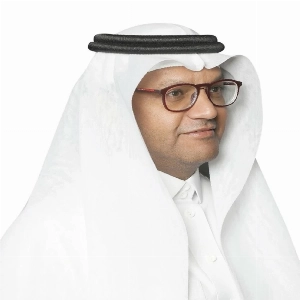Saudi women in the driving seat
June 26, 2018 | 01:23 AM

3 minute read
AA
ResizeAT a time when good news is hard to find, we have been blessed here with lots of happy surprises. After waiting for what seems like eternity, Custodian of the Two Holy Mosques King Salman gave Saudi women even more to celebrate about: The right to drive and the law protecting them from sexual harassment on the road, in office and at cyberspace.
The last Sunday will go down in history as the day Saudi women were finally free to drive after ten moths of preparations. Ever since women driving schools were opened, thousands have had extensive training and received their driving licenses. Scores of female investigators have been trained to deal with accidents and traffic disputes involving females. In addition, special parking spaces in universities, schools and markets have been preserved for our women. Some may say that is a reverse inequality. I believe they deserve it — at least to compensate for the long wait!
Despite the doubts, I expect that the Saudi woman, as usual, will prove to be a skilled, keen and safe driver. In the past, and now, the discouragers and doomsayers have always questioned women’s ability to pursue education and work in all fields, including business, police, military, engineering and medicine. However, on every occasion and at every turn, our women have always proved them wrong!
For decades, some questions chased me everywhere I happened to be around the world, especially during interviews with the international media. Questions about women rights were among the most persistent and hardest to answer.
First, you needed to explain how the religion of Islam had nothing to do with the shortcomings of some Muslims. Then, you had to go some distance to explain why wouldn’t a system in a Muslim country adhere to Islamic Shariah. And once you clarified the influence of social customs and traditions, you might have already lost your audience!
During a conference, last year, my American and Arab colleagues were patient enough to listen to me, before they asked: How could we help? I told them any help from abroad would complicate things. It would be more like the kiss of death for our efforts. Saudi women are already doing their best to change society from within. They managed to reach many levels, including ministerial and other positions, which were reserved for men in the past, such as in security and military forces. Saudi men who believe in the cause are helping. We did well.
For years now, our women vote and run for offices in municipality and chambers of commerce elections. Some are chairwomen of banks and mega companies. Fifth of our Shoura Council members are women — more than in the US Congress and European parliaments. King Salman has lifted restrictions on women to study and work without their guardian approval.
Girls consist more than half the student population with higher grades. They had the same opportunity as males in scholarship abroad, again with better scores. Once they graduate, they enroll as doctors, nurses, engineers, bankers, scientists and university professors, working side by side with their male counterparts.
Those are more important accomplishments, in my opinion than driving a car. Still, women right activists around the world seemed to be concerned most with just this one issue. They were surprisingly unaware of the giant steps achieved in other areas. Just wait a bit longer, I advised. Stay on the sideline and let our women continue their march on their own. Soon enough more achievements will be realized, including car driving, I promised my colleagues.
A month after this discussion, not only the ban on women driving was lifted, but a “sexual harassment” law was also promised. As important, the new driving law would treat male and female equally, including the starting age of 18, with no need for parental approval. Those are giant steps for our better women! They deserve them and more.
The next step, we are now calling and waiting for, is the “Protection of National Unity” law against racial, gender and religious discrimination — hashtags advocating the law became top trends in Twitter recently. It has been a march we started years ago. It went through the Shoura Council, and is still there! Like any monumental change, it was resisted. Society was not ready then, but now, we believe it is. In such favorable environment our hopes are sky high. Soon enough, I expect the law to be approved with a royal degree.
Welcome Saudi women in the driving seat of our society and country. Welcome to our great march to brighter future. The Saudi Vision 2030 needs all the minds and hearts we could get—and who is better and more trusted partner than our best half? All aboard!
Dr. Khaled M. Batarfi is a Saudi writer based in Jeddah. He can be reached at kbatarfi@gmail.com. Follow him at Twitter:@kbatarfi













